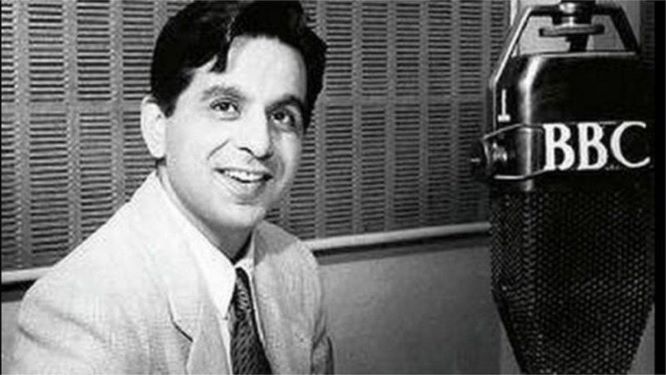New Delhi, July 7 (BBC): The Late Dilip Kumar was arguably the best actor Indian cinema has produced, writes Lord Meghnad Desai, eminent economist and Dilip Kumar’s biographer.
There are stars, some even bigger than him, but no better actors.
In his range, depth and integrity, Dilip Kumar matched Hollywood great Marlon Brando or Japanese star Toshiro Mifune or Italian legend Marcello Mastroianni.
Kumar is not known abroad as he never acted in an English-language film. But his status as an actor who set a template which generations of film stars still emulate is unquestioned.
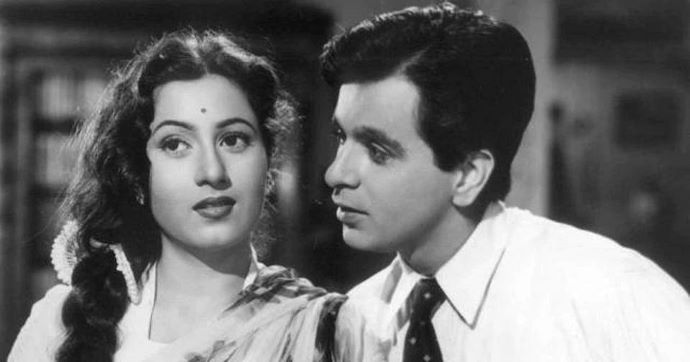
For over half a century – from 1944 when he made his first film, Jwaar Bhata, until his last film, Qila – he essayed a gamut of roles which defined manhood for generations of Indians. He was a romantic in Mela, Naya Daur, Ganga Jumna and Sagina Mahto.
He played a suave urban young man in Andaz, Footpath, Amar (the latter two somewhat darker than was the norm in Bollywood cinema at the time), Paigham, Madhumati and Leader.
He essayed a Bengali bhadralok – a bourgeois gentleman – in Milan, Devdas and Shikast.
He played a swashbuckling character in Aan, Azaad, Kohinoor and even in a way in Mughal-e-Azam.
He was the finest tragic actor of his days but also succeeded at comedy.
In the 1970s, he gracefully moved to character roles, playing the policeman father to superstar Amitabh Bachchan’s criminal son character in Shakti.
He was a part of the effusion of patriotic films where he played a paterfamilias upholding the law and the honour of the country in Kranti, Karma and Kanoon Apna Apna.
Born Yusuf Khan in December 1922 in Peshawar, now part of Pakistan, he was the son of a fruit seller.
He had no training in theatre or any inclination for the arts in his school or college days.
But Devika Rani, the doyenne of Bombay Talkies studio and a formidable star in her own right picked him up, gave him his cinema name and cast him in Jwaar Bhata.
But the crucial stage came in his third film Milan, based on revered writer Rabindranath Tagore’s novel Nauka Dubi.
This was when Kumar came under the influence of filmmaker Nitin Bose who, as he tells everyone, taught him the essence of acting – how to be able to emote without speaking.
Though Kumar was known as a method actor, he did this without any formal training. He immersed himself in every role he played.
After a spate of early tragic roles which were popular in the late 1940s, he got severely depressed and had to consult a psychiatrist in London who told him to lighten up and choose happier roles.
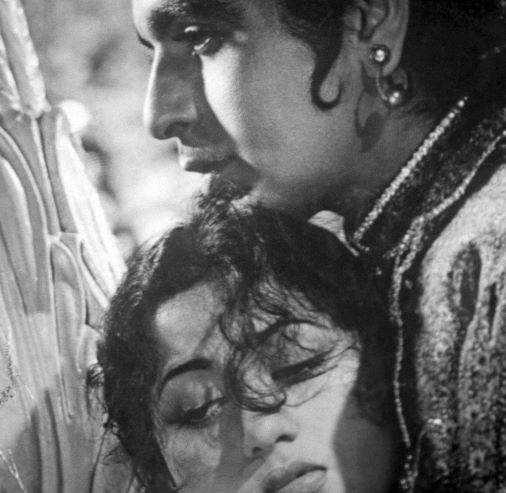
Kumar – more than his contemporary rivals and fellow stars Raj Kapoor and Dev Anand – reflected India’s political and social evolution through his films.
Kumar’s roles told the story of India as it unfolded- as the independent country grew, prospered, ran into difficulties and faced challenges.
His farmer in Mela (1948) is helpless, at the receiving end of outside forces, while by 1957, when he made Naya Daur, the same rural India has been transformed and young men believe they can take on the world and challenge it.
By 1960, the rural bandit Ganga he played in Ganga Jumna has a reason to rebel but yet the law must take its course and he must pay for his defiance.
His trade unionist in Paigham is a mild, middle-of-the-road person but not a feudal servitor to his mill employer.
Leader, his most explicit political film, is devoted to a passionate defence of India’s first prime minister Jawaharlal Nehru’s vision of a secular democratic country.
Dilip Kumar won several awards in his life
In a long career as an actor and producer, Kumar achieved much and was rewarded.
He received the Indian civilian award Padma Bhushan in 1991 and the Dadasaheb Phalke Award in 1994 for his contribution to cinema.
Pakistan too gave him its civilian award – the Nishan-e-Imtiaz – in 1997 which caused some controversy at home, but Atal Bihari Vajpayee, leader of the right-wing Bharatiya Janata Party (BJP) defended his right to keep it.
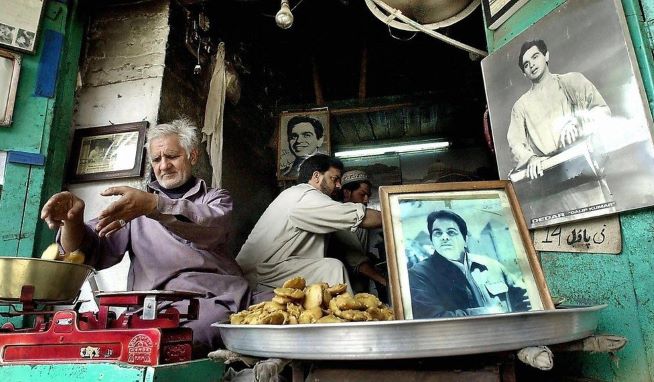
Kumar holds the Guinness world record for having received the most awards among Indian actors.
His 1950s rivals Raj Kapoor and Dev Anand have passed away as have many of the leading ladies he was paired with – Nur Jahan, Nargis, Meena Kumari, Madhubala, Nalini Jaywant and Nutan.
He married Saira Banu in 1966 in what proved to be a happy and enduring marriage.
Kumar was more than a great actor. He was an exemplary citizen of free India.
Agencies add:
Thespian Dilip Kumar’s death on Wednesday has left the entire Indian film fraternity shocked and in mourning. The legendary actor who passed away at the age of 98 has left a void in cinema and a huge body of work behind, for future filmmakers and actors to learn from. Dilip Kumar, who had been facing regular health issues for months now, passed away at Mumbai’s Hinduja Hospital.
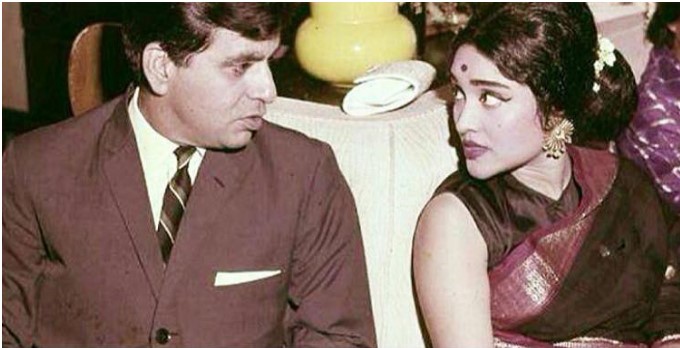
“With a heavy heart and profound grief, I announce the passing away of our beloved Dilip Saab, few minutes ago. We are from God and to Him we return,” his friend Faisal Farooqui wrote on the actor’s official Instagram account.
Popularly known as the ‘Tragedy King’ of Bollywood, Kumar was known as a method actor who was never limited to genres. In a career spanning more than five decades, the prolific legend was part of comedies, dramas, romance, and so on.
Some of his bes-known films include Aan, Daag, Devdas, Madhumati, Azaad, Mughal-e-Azam, Gunga Jamuna, Kranti, Karma, Ram Aur Shyam, among others.
Dilip Kumar also possessed the distinction of being the only Indian recipient of Pakistan’s highest civilian award, Nishan-e-Imtiaz.
For his contribution to cinema, Dilip Kumar was conferred with the Dadasaheb Phalke Award, India’s highest award in the artform. He also received the Padma Vibhushan, the second-highest civilian award of the country.
Along with Shah Rukh Khan, he held the record for winning the most Filmfare Awards in the Best Actor category: 8. He also won the inaugural trophy in the same category in 1954.
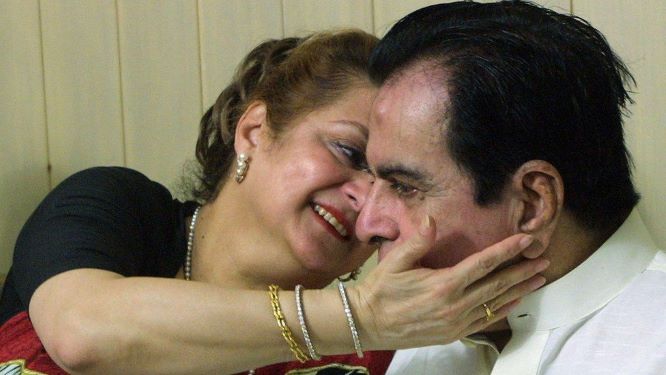
Helped End Kargil War
Indian movie idol and recipient of Pakistan’s highest civilian award Dilip Kumar had intervened with Prime Minister Nawaz Sharif to help defuse the 1999 Kargil crisis, former foreign minister Khurshid Mahmud Kasuri said in October 2015, reports Dawn.
Kasuri quoted an aide of Sharif as confiding with him that in the middle of a conversation in July 1999 between the Pakistan prime minister and India’s Atal Behari Vajpayee, the latter handed the phone to Kumar who was listening in.
“The prime minister did not believe it was his hero on the phone,” Kasuri told NDTV. Dilip Kumar assured him it was indeed he speaking, and he was concerned about the flare-up on the Kargil heights. He urged Sharif to help defuse the crisis quickly as that would be the right thing to do in the interests of the people on both sides.
PM Modi pays tribute
Prime Minister Narendra Modi shared via Twitter, “Dilip Kumar Ji will be remembered as a cinematic legend. He was blessed with unparalleled brilliance, due to which audiences across generations were enthralled. His passing away is a loss to our cultural world. Condolences to his family, friends and innumerable admirers. RIP.”
Rahul Gandhi shares his condolences
Rahul Gandhi tweeted, “My heartfelt condolences to the family, friends & fans of Dilip Kumar ji. His extraordinary contribution to Indian cinema will be remembered for generations to come.”
Dilip Kumar has left behind his wife and yesteryear actor Saira Banu. Born 22 years apart, they had tied the knot in 1966. The couple does not have any children.






















































